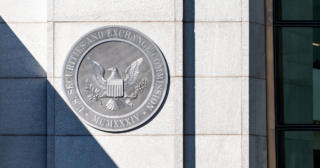- Resources
- Three upsides of the SEC’s proposed climate disclosure standards for companies
Resources
Three upsides of the SEC’s proposed climate disclosure standards for companies
Published: April 18, 2022 by EDF Staff
The Securities and Exchange Commission (SEC) recently issued a proposal that, if finalized, would require publicly traded companies to disclose the financial risks they face from climate change. The proposed rule is a critical step to protect the health and stability of financial markets by bringing disclosure of the financial risks posed by climate change level with other forms of financial risk.
Climate change poses substantial financial risks across the U.S. financial system. In 2021 alone, extreme weather events cost the United States over $20 billion, while 215 of the world’s largest companies face almost $1 trillion in climate-related risk. Investors are increasingly seeking access to information to understand these financial risks and have requested that the SEC implement disclosure standards that will provide access to comparable, specific, and decision-useful information about climate risk. The SEC’s proposal is designed to meet that need.
Although climate risk disclosure is designed to meet the needs of investors, it will also convey important benefits to businesses. That’s why, in response to a prior SEC request for information on climate disclosure, companies including Dell, TotalEnergies, and Walmart submitted comments in support of mandatory climate risk disclosure. And Bank of America recently voiced support for the SEC’s proposed disclosure rule, joining a growing chorus of businesses and investors.
Here are three upsides of the SEC’s proposed standards for companies:
- Streamlined reporting. Many companies routinely disclose climate risk information through voluntary reporting frameworks (e.g., CDP, SASB, TCFD). They also respond to requests for disclosure from investors, customers, and other stakeholders. Managing multiple reporting frameworks is inefficient and time-consuming and requires significant resources to aggregate and communicate the data. Standardizing climate risk disclosure streamlines the collection of climate risk data and the reporting of climate risk information, thereby reducing reporting costs for companies.
- Better benchmarking. By improving transparency around corporate climate risk exposure, the SEC’s proposal can help companies better benchmark preparedness against their peers. Companies will also be able to track the risk exposure of peers and competitors, a core facet of healthy and stable markets.
- Opportunity to communicate progress. With consistent and comparable reporting over time, corporate climate leaders will be able to communicate about and demonstrate their progress and leadership more credibly to investors, customers, competitors, and other stakeholders.
The SEC proposal is open for public comment through May 20. Input from companies will help inform the SEC as it works to finalize its climate disclosure standards later this year.
To learn more about the SEC proposed rule and how to provide input:
- Read more: Stakeholder Guide to the SEC’s Proposed Rule on Climate-Related Disclosure and Climate change creates financial risks. Investors need to know what those are.
- Watch EDF’s informational webinar featuring Michael Panfil (Lead Counsel and Director of Climate Risk Strategies at EDF); Wendy Cromwell (Head of Sustainable Investment at Wellington Management); and Fitzann Reid (Deputy General Counsel at Engine No. 1).
- Visit Ceres’ Climate Disclosure website
- Reach out to learn more


